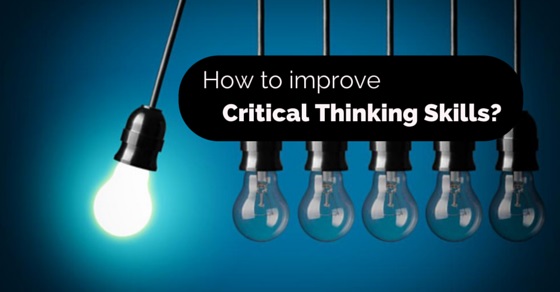Tips to improve critical thinking skills

Here are some practical tips to help improve your critical thinking skills:
Ask Questions: Develop a habit of asking questions about everything you encounter. This encourages curiosity and helps you delve deeper into subjects, uncover assumptions, and identify gaps in your understanding.
Challenge Assumptions: Don't accept information at face value. Instead, question underlying assumptions and biases in your own thinking as well as in the information you consume. Consider alternative viewpoints and perspectives.
Evaluate Sources: Be discerning about the sources of information you rely on. Assess the credibility, reliability, and bias of sources before accepting their claims. Seek out diverse perspectives and corroborating evidence.
Practice Active Listening: Listen attentively and empathetically when engaging in discussions or receiving feedback. Seek to understand others' viewpoints fully before formulating your own responses. Ask clarifying questions to ensure comprehension.
Develop Logical Reasoning: Sharpen your logical reasoning skills by studying formal logic principles and common fallacies. Learn to recognize flawed arguments and faulty reasoning in both your own thinking and the arguments of others.
Think Systematically: Break down complex problems or situations into smaller components to analyze them more effectively. Consider how different factors interact and influence outcomes. Use frameworks like SWOT analysis or decision trees to organize your thoughts.
Practice Reflection: Take time to reflect on your thoughts, beliefs, and actions. Consider how your biases, assumptions, and experiences shape your perspective. Reflect on past decisions and outcomes to learn from them and improve your future judgment.
Engage in Debate: Engage in structured debates or discussions with others to explore different viewpoints and challenge your own ideas. Be open-minded and willing to reconsider your position based on compelling evidence or arguments.
Solve Problems Creatively: Cultivate creativity as part of your critical thinking toolkit. Experiment with brainstorming techniques, lateral thinking exercises, and other creative problem-solving methods to generate innovative solutions.
Stay Informed: Stay informed about current events, trends, and developments in various fields. Read widely across different subjects to broaden your knowledge base and expose yourself to diverse perspectives.
Seek Feedback: Solicit feedback from peers, mentors, or experts to gain insight into your critical thinking skills. Welcome constructive criticism as an opportunity for growth and self-improvement.
Practice Regularly: Like any skill, critical thinking improves with practice. Look for opportunities in your daily life, work, or studies to apply critical thinking techniques and solve problems analytically.
By incorporating these tips into your daily routine and actively practicing critical thinking, you can develop sharper analytical skills, make more informed decisions, and navigate complex situations with confidence.
Thank you,